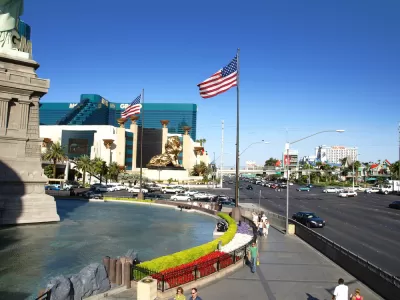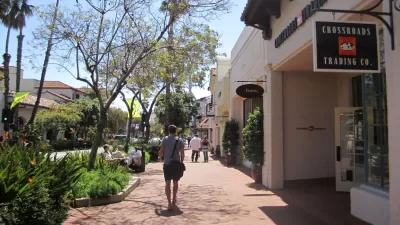Accepted by planners as a way to make buildings feel less 'crowded' and baked into many zoning codes, setbacks achieve no benefit other than giving opponents of development a bargaining chip.

"Received wisdom holds that setbacks make urban spaces feel less crowded. They supposedly ensure that buildings do not overshadow streets and sidewalks. They create the illusion of less density and protect buildings’ personal space. They create room for 'green space,' 'light,' and 'park-like settings,' which sound great in real estate listings. They assume that buildings are impositions on their cityscapes, to be contained so as not to offend delicate sensibilities."
"To the proponents of setbacks, a few patches of grass might as well be Luxembourg Gardens. But think about the classic street in any of the cities I cited above. If you enjoy Paris or New York, you already know why you shouldn’t like setbacks. Density in a city is good. And not just population density. The actual appearance of density (which may or may not have anything to do with population density, depending on the type of structure in question) is good, too."
"Setbacks are the currency of anti-development activism. Homeowners who like their cities and their property values just fine don’t care how far away a building is from a street. They’re likely only to see those buildings at 35 miles per hour anyway, and probably from a lane or two away (plus a few feet if there’s a devil strip). But they know how to push planners around."
FULL STORY: Why Cities Should Back Off of Setbacks

Planetizen Federal Action Tracker
A weekly monitor of how Trump’s orders and actions are impacting planners and planning in America.

Restaurant Patios Were a Pandemic Win — Why Were They so Hard to Keep?
Social distancing requirements and changes in travel patterns prompted cities to pilot new uses for street and sidewalk space. Then it got complicated.

Map: Where Senate Republicans Want to Sell Your Public Lands
For public land advocates, the Senate Republicans’ proposal to sell millions of acres of public land in the West is “the biggest fight of their careers.”

Maui's Vacation Rental Debate Turns Ugly
Verbal attacks, misinformation campaigns and fistfights plague a high-stakes debate to convert thousands of vacation rentals into long-term housing.

San Francisco Suspends Traffic Calming Amidst Record Deaths
Citing “a challenging fiscal landscape,” the city will cease the program on the heels of 42 traffic deaths, including 24 pedestrians.

California Homeless Arrests, Citations Spike After Ruling
An investigation reveals that anti-homeless actions increased up to 500% after Grants Pass v. Johnson — even in cities claiming no policy change.
Urban Design for Planners 1: Software Tools
This six-course series explores essential urban design concepts using open source software and equips planners with the tools they need to participate fully in the urban design process.
Planning for Universal Design
Learn the tools for implementing Universal Design in planning regulations.
Heyer Gruel & Associates PA
JM Goldson LLC
Custer County Colorado
City of Camden Redevelopment Agency
City of Astoria
Transportation Research & Education Center (TREC) at Portland State University
Camden Redevelopment Agency
City of Claremont
Municipality of Princeton (NJ)





























